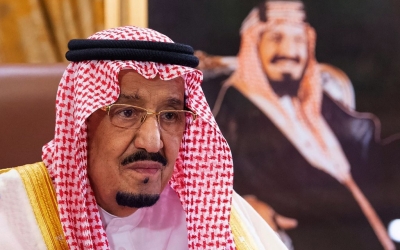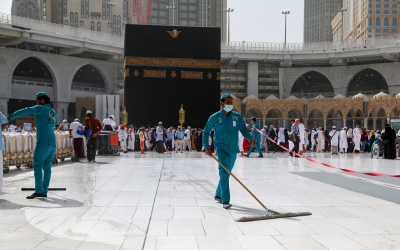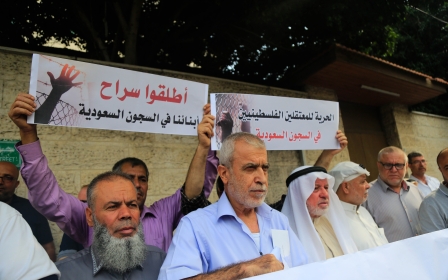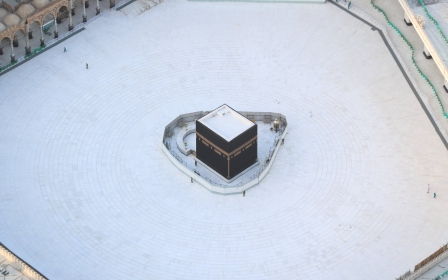Coronavirus: Thousands in quarantine in Saudi as confirmed cases exceed 500
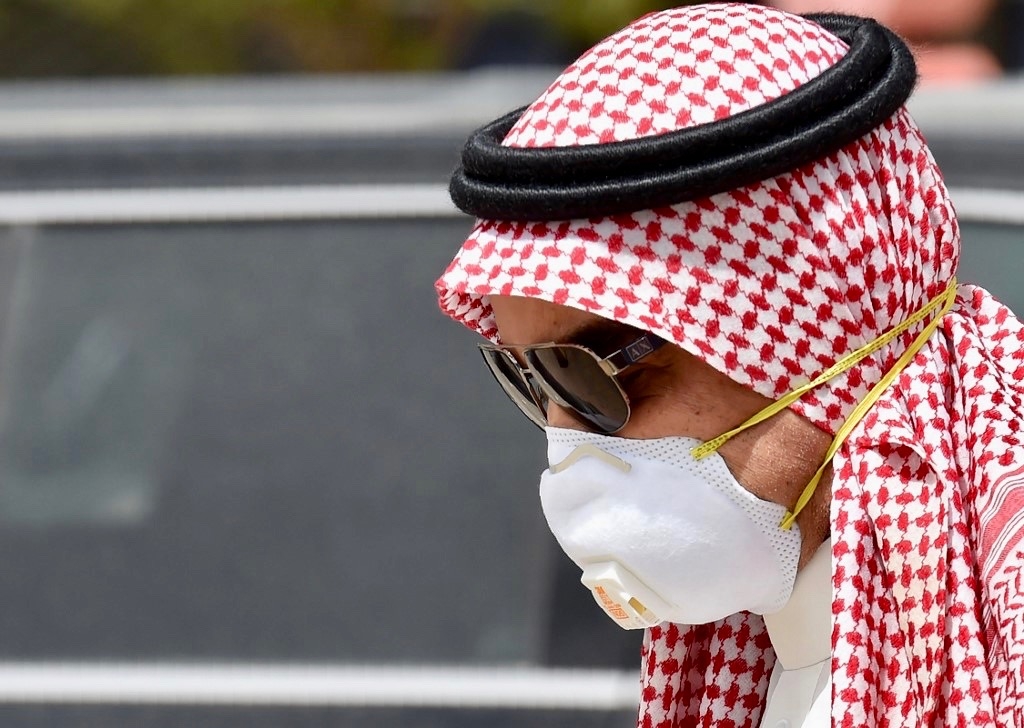
Saudi Arabia reported a jump of almost a quarter in coronavirus cases on Sunday to more than 500, the highest number among the Gulf Arab states.
Saudi Arabia recorded 119 new cases of the virus, taking the total number of confirmed cases to 511, the Health Ministry said.
Middle East Eye on Friday reported that Riyadh's King Faisal Hospital, where members of the royal family are treated, was being closed down for all but emergency cases after an anaesthetist working at the hospital tested positive for the virus.
The tally of cases in the six-nation Gulf Cooperation Council now stands at more than 1,700. Bahrain reported a second death on Sunday, a citizen evacuated from Iran, taking the GCC's total to four.
Saudi Health Ministry spokesman Mohammed Abdelali said 72 of the new cases were Turkish nationals under quarantine in the holy city of Mecca after interacting with an infected compatriot.
"We are starting to see more cases linked to interactions ... We advise everyone to stay home," he told a news conference, adding that more than 4,000 people were under quarantine.
A third of coronavirus infections in Saudi Arabia are a result of people coming into contact with previously infected individuals and taking part in social gatherings, including weddings, funerals, and family get-togethers, the Ministry of Foreign Affairs reported early on Sunday, as cited by Gulf News.
The kingdom also reported on Sunday that 17 people had recovered from the deadly virus.
The region has expanded measures to combat the spread of the disease. Kuwait and Saudi Arabia have taken some of the most drastic steps, including halting international flights, suspending work at most institutions and closing public venues.
Gulf governments have announced stimulus packages to shield their energy-producing economies, which have also been hit by a collapse in oil prices.
The emir of Kuwait, which has imposed a partial nationwide curfew, said the government must spare no expense or effort to fight the virus.
"This is a decisive battle against a fierce enemy. It is everyone's battle," Sheikh Sabah al-Ahmad al-Sabah said in a rare televised speech, warning against public gatherings.
The UAE, the region's tourism and business hub, approved an additional 16bn dirhams ($4.4bn) on Sunday, for a total stimulus package of 126bn dirhams, according to a tweet from its vice president, Sheikh Mohammed bin Rashid al-Maktoum, the ruler of Dubai.
The vital tourism and hospitality sector in Dubai, the region's most diversified economy, has been hit hard by the disruption to global travel.
Emirates, one of the world’s biggest airlines, said it would suspend passenger operations - with the exception of repatriation flights to 13 countries - by Wednesday. Cargo operations will continue.
The Dubai World Cup, one of the world's richest horse races, has been cancelled.
Other Gulf states expanded precautionary measures.
Oman banned public gatherings and shut currency exchange shops. Bahrain ordered all stores except those supplying essential goods to shut. In Kuwait, some supermarkets were allowing only 50 shoppers at a time.
Qatar has so far recorded 481 cases of the coronavirus, but no deaths. It also banned public gatherings and closed its parks and public beaches, but said food outlets, pharmacies and delivery services would operate normally.
Still, Iran is the Middle Eastern country most affected by the coronavirus, as on Sunday its death toll reached 1,685, with 129 deaths in the past 24 hours. A Health Ministry spokesman told state TV that the total number of infected people in Iran had reached 21,638.
Middle East Eye delivers independent and unrivalled coverage and analysis of the Middle East, North Africa and beyond. To learn more about republishing this content and the associated fees, please fill out this form. More about MEE can be found here.


